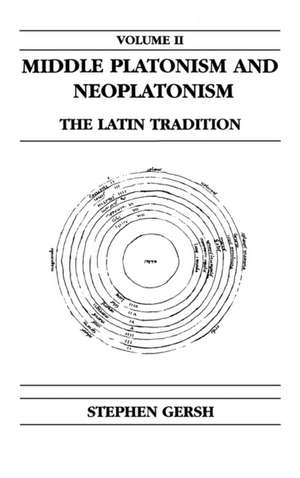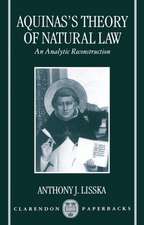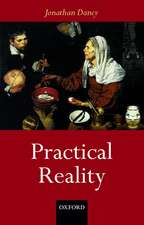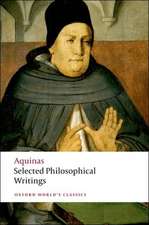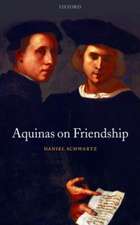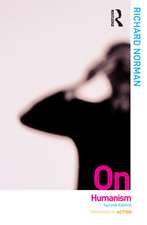Middle Platonism and Neoplatonism, Volume 2 – The Latin Tradition
Autor Stephen Gershen Limba Engleză Hardback – 29 sep 1986
| Toate formatele și edițiile | Preț | Express |
|---|---|---|
| Paperback (1) | 453.43 lei 6-8 săpt. | |
| MR – University of Notre Dame Press – 14 apr 1994 | 453.43 lei 6-8 săpt. | |
| Hardback (1) | 839.22 lei 6-8 săpt. | |
| MR – University of Notre Dame Press – 29 sep 1986 | 839.22 lei 6-8 săpt. |
Preț: 839.22 lei
Preț vechi: 1149.61 lei
-27% Nou
Puncte Express: 1259
Preț estimativ în valută:
160.64€ • 174.54$ • 135.02£
160.64€ • 174.54$ • 135.02£
Carte tipărită la comandă
Livrare economică 21 aprilie-05 mai
Preluare comenzi: 021 569.72.76
Specificații
ISBN-13: 9780268013639
ISBN-10: 0268013632
Pagini: 540
Dimensiuni: 152 x 229 x 30 mm
Greutate: 0.89 kg
Editura: MR – University of Notre Dame Press
ISBN-10: 0268013632
Pagini: 540
Dimensiuni: 152 x 229 x 30 mm
Greutate: 0.89 kg
Editura: MR – University of Notre Dame Press
Descriere scurtă
Notă biografică
Stephen Gersh is professor of Medieval Studies at the University of Notre Dame and a former Fellow of Magdalene College, Cambridge. He is author of Kinesis Akinetos: A Study of Spiritual Motion in the Philosophy of Proculus and From Iamblichus to Eriugena: An Investigation of the Prehistory and Evolution of the Pseudo-Dionysian Tradition
Textul de pe ultima copertă
It is generally agreed that those types of philosophy that are loosely called "Platonic" and "Neoplatonic" played a crucial role in the history of European culture during the centuries between antiquity and the Middle Ages. However, until now no scholar has attempted to describe the evolution of these forms of thought in a single comprehensive academic study. Middle Platonism and Neoplatonism is the first full-scale study to bridge the gap between ancient and medieval thought.
Stephen Gersh’s two-volume survey of Platonic influences upon the Middle Ages focuses on questions that are basic to scholars of medieval philosophy, history, and literature: What was the influence of Plato’s philosophy during the Middle Ages? Is it correct to consider earlier medieval philosophy as Platonic? How do Platonism and Neoplatonism differ? What do Platonic and Neoplatonic modes of thought have to do with Plato?
Most medieval philosophers developed their doctrines without access to the greatest intellectual works of the Greeks. Instead, they elaborated their philosophies in relation to the Latin philosophical literature that spanned the classical period to the end of antiquity. Thus, Gersh develops his study by examining the important channels of transmission that existed for medieval philosophers. // Following an introduction that outlines particular methodological perspectives relative to the discussion, the history is divided into three main sections. In total, the study surveys an impressive range of authors never previously considered in a single work, with many of the translations previously available only as Greek and Latin texts: I.1 Middle Platonism: The Platonists and the Stoics (Cicero, Seneca); I.2 Middle Platonism: The Platonists and the Doxographers (Gellius, Apuleius, the Hermetic "Asclepius," Ambrose, Censorinus, Augustine); II Neoplatonism (Calcidius, Macrobius, Martianus Capella, Boethius, Marius Victorinus, Firmicus Maternus, Favonius Eulogius, Servius, Fulgentius, Priscianus Lydus, Priscianrs Grammaticus)
The concluding chapter illustrates the Platonic influence upon certain medieval authors up to the early twelfth century, and it establishes guidelines for further study. Middle Platonism and Neoplatonism contains an extensive bibliography and a complete index of Latin texts.
Stephen Gersh is professor of Medieval Studies at the University of Notre Dame and a former Fellow of Magdalene College, Cambridge. He is author of Kinesis Akinetos: A Study of Spiritual Motion in the Philosophy of Proculus and From Iamblichus to Eriugena: An Investigation of the Prehistory and Evolution of the Pseudo-Dionysian Tradition.
Stephen Gersh’s two-volume survey of Platonic influences upon the Middle Ages focuses on questions that are basic to scholars of medieval philosophy, history, and literature: What was the influence of Plato’s philosophy during the Middle Ages? Is it correct to consider earlier medieval philosophy as Platonic? How do Platonism and Neoplatonism differ? What do Platonic and Neoplatonic modes of thought have to do with Plato?
Most medieval philosophers developed their doctrines without access to the greatest intellectual works of the Greeks. Instead, they elaborated their philosophies in relation to the Latin philosophical literature that spanned the classical period to the end of antiquity. Thus, Gersh develops his study by examining the important channels of transmission that existed for medieval philosophers. // Following an introduction that outlines particular methodological perspectives relative to the discussion, the history is divided into three main sections. In total, the study surveys an impressive range of authors never previously considered in a single work, with many of the translations previously available only as Greek and Latin texts: I.1 Middle Platonism: The Platonists and the Stoics (Cicero, Seneca); I.2 Middle Platonism: The Platonists and the Doxographers (Gellius, Apuleius, the Hermetic "Asclepius," Ambrose, Censorinus, Augustine); II Neoplatonism (Calcidius, Macrobius, Martianus Capella, Boethius, Marius Victorinus, Firmicus Maternus, Favonius Eulogius, Servius, Fulgentius, Priscianus Lydus, Priscianrs Grammaticus)
The concluding chapter illustrates the Platonic influence upon certain medieval authors up to the early twelfth century, and it establishes guidelines for further study. Middle Platonism and Neoplatonism contains an extensive bibliography and a complete index of Latin texts.
Stephen Gersh is professor of Medieval Studies at the University of Notre Dame and a former Fellow of Magdalene College, Cambridge. He is author of Kinesis Akinetos: A Study of Spiritual Motion in the Philosophy of Proculus and From Iamblichus to Eriugena: An Investigation of the Prehistory and Evolution of the Pseudo-Dionysian Tradition.
